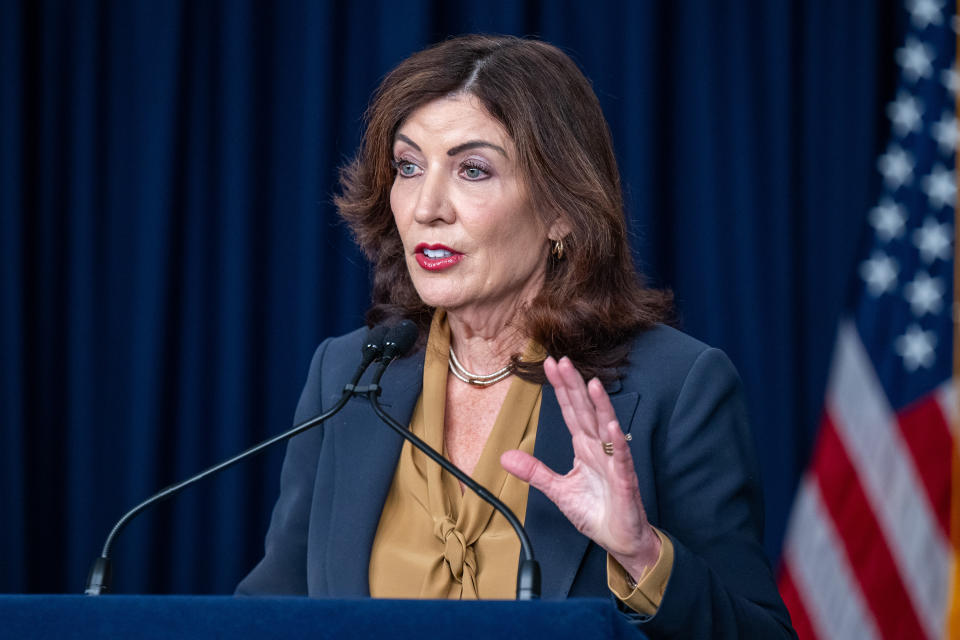New York governor signs Clean Slate Act, hailing ‘victory for common sense’

NEW YORK — Gov. Kathy Hochul on Thursday signed into law a plan to seal the criminal records of more than 2 million New Yorkers who have served their time, hailing the measure as a “victory for common sense and moral decency.”
The final approval of the Clean Slate Act, which was endorsed by criminal justice advocates and business interests but opposed by Republicans, came after a yearslong legislative effort that culminated in the bill’s passage in June.
Hochul suggested the measure would accomplish twin goals: making New York safer by taking people off the streets, and addressing a worker shortage by clearing away a roadblock to New Yorkers’ employment prospects.
The measure is scheduled to take effect in one year, allowing the court system to set in place a process of sealing the records, said state Sen. Zellnor Myrie, a central Brooklyn Democrat and the bill’s Senate sponsor. Ultimately, the law could seal the records of 2.3 million New Yorkers, according to his office.
Under the act’s provisions, murder convictions and most other Class A felonies are not eligible to be sealed, and felons will need to be at least eight years removed from the end of their sentences to have their records shielded.
Misdemeanor convictions are to be eligible to be sealed three years after the end of a sentence. Records would generally be sealed from the view of potential employers, but not law enforcement.
“We’re not going to continue to judge people on their worst moments in life when they’ve paid their debt,” Hochul declared at a bill signing ceremony held at a large hall in the Brooklyn Museum and attended by state Attorney General Letitia James.
Hochul said that law enforcement and unions had gotten behind the bill, and that the “best anti-crime tool we have is a job.”
“When people have steady work, they’re less likely to commit crimes and less likely to be homeless,” said Hochul, a Buffalo Democrat who frequently says that public safety is her top priority.
Still, Republicans laid into the plan, arguing it would make communities less safe by sealing too broad a selection of felonies.
Senate Minority Leader Rob Ortt, a Niagara County Republican, said in a statement that “Albany Democrats will always prioritize criminals over victims and law-abiding citizens.”
In an interview after the signing ceremony, Myrie dismissed criticism “based on politics.”
“People believe in redemption,” Myrie said. “We have to focus squarely on what this bill does — which is give people opportunity — and not give in to the fearmongering.”
_____

 Yahoo Finance
Yahoo Finance 